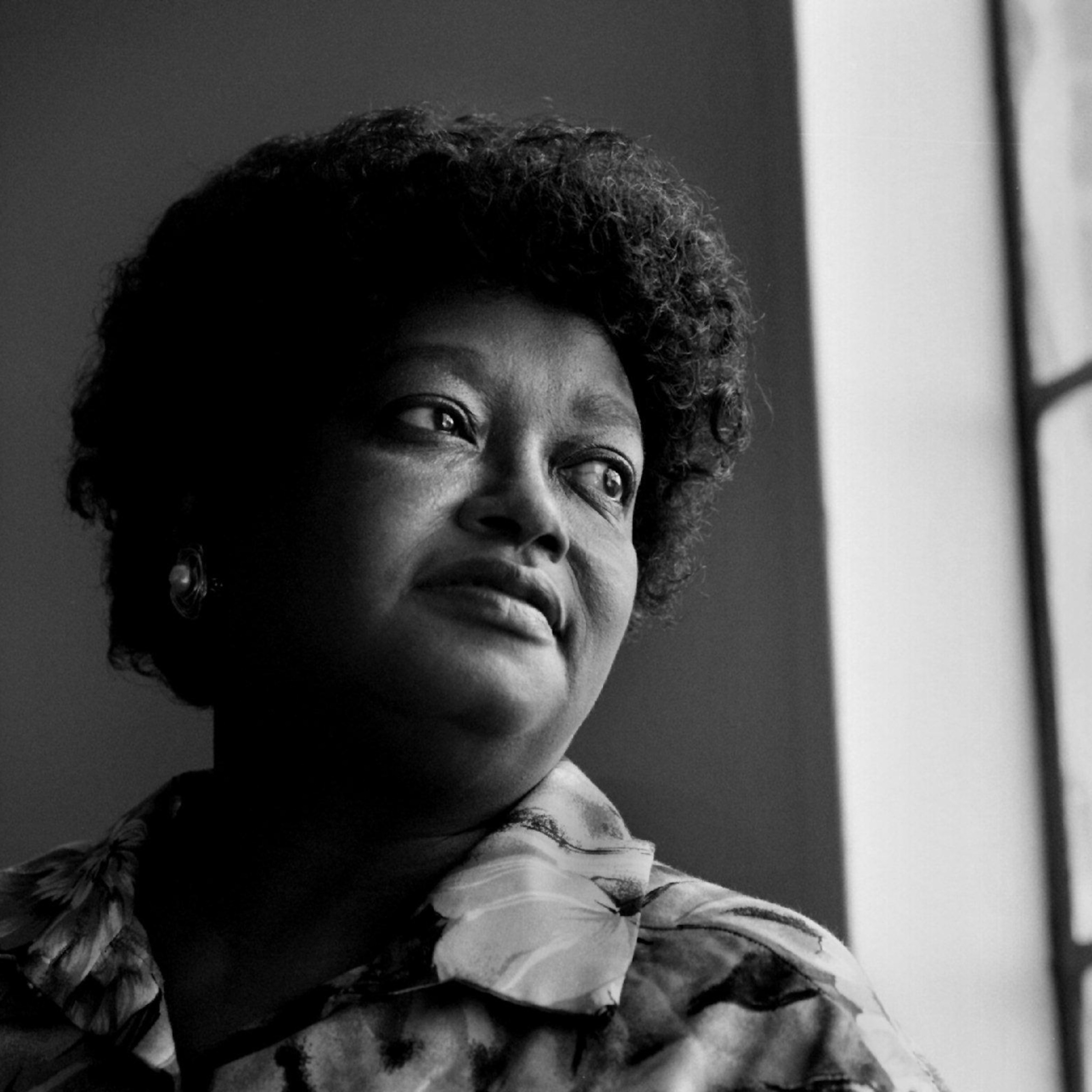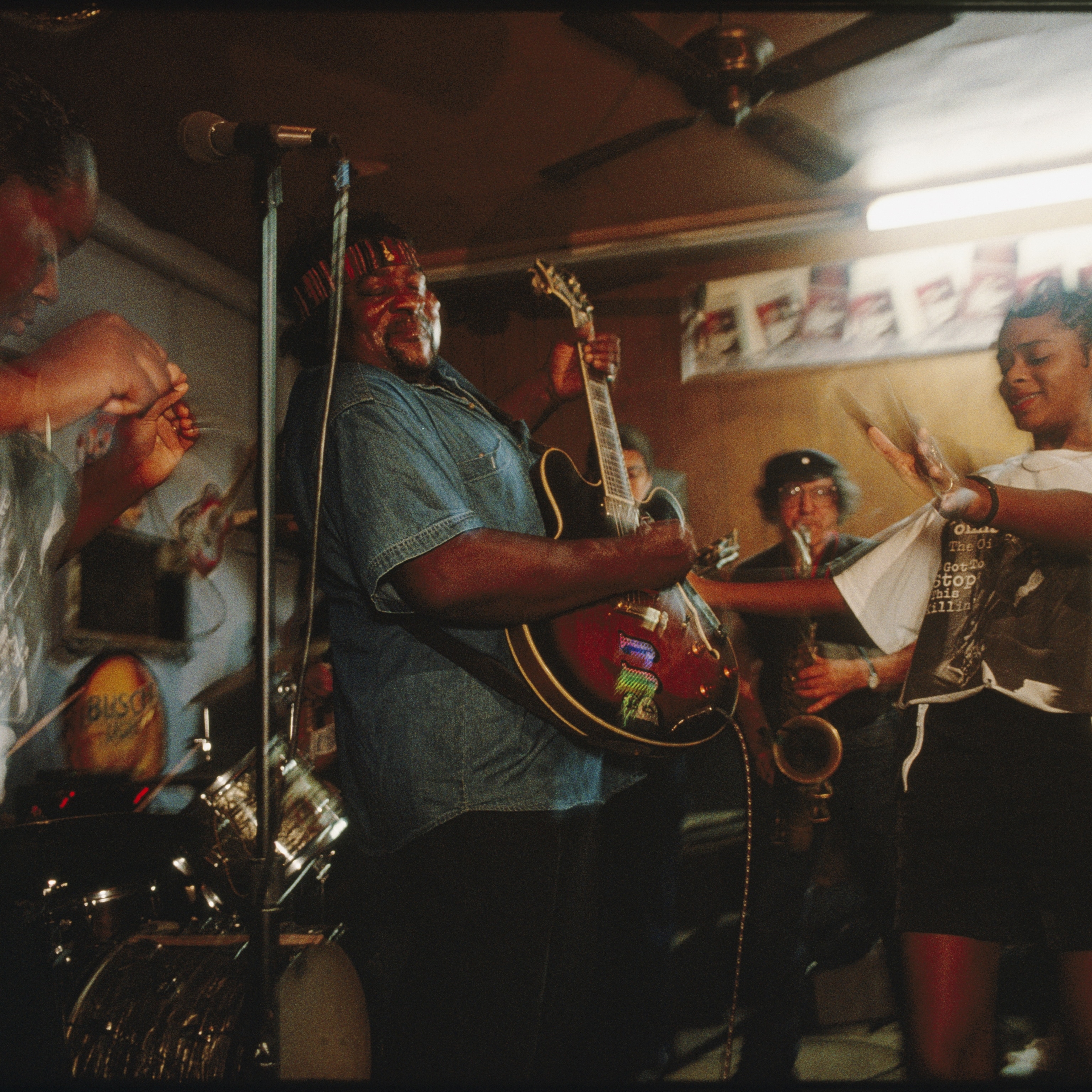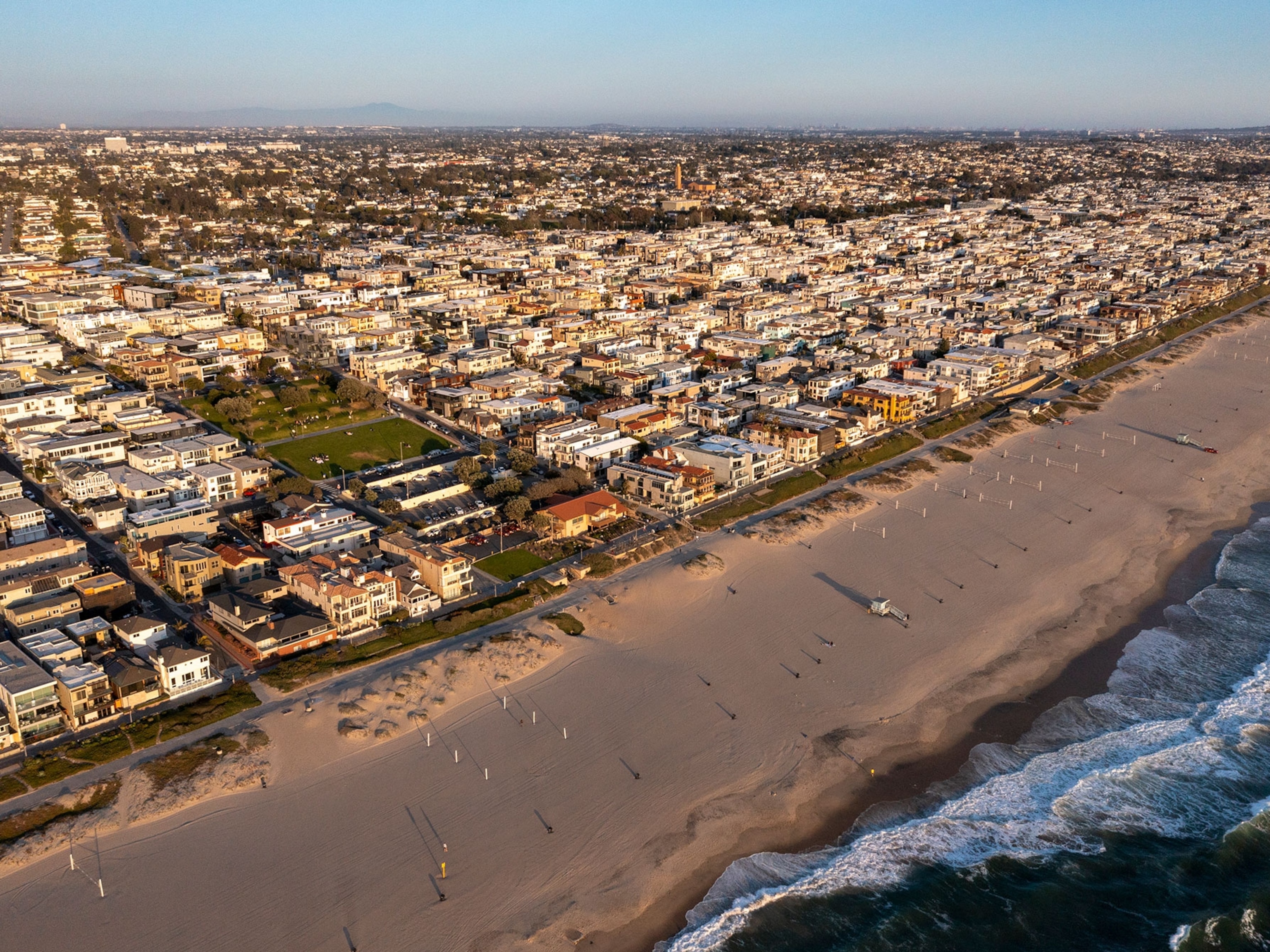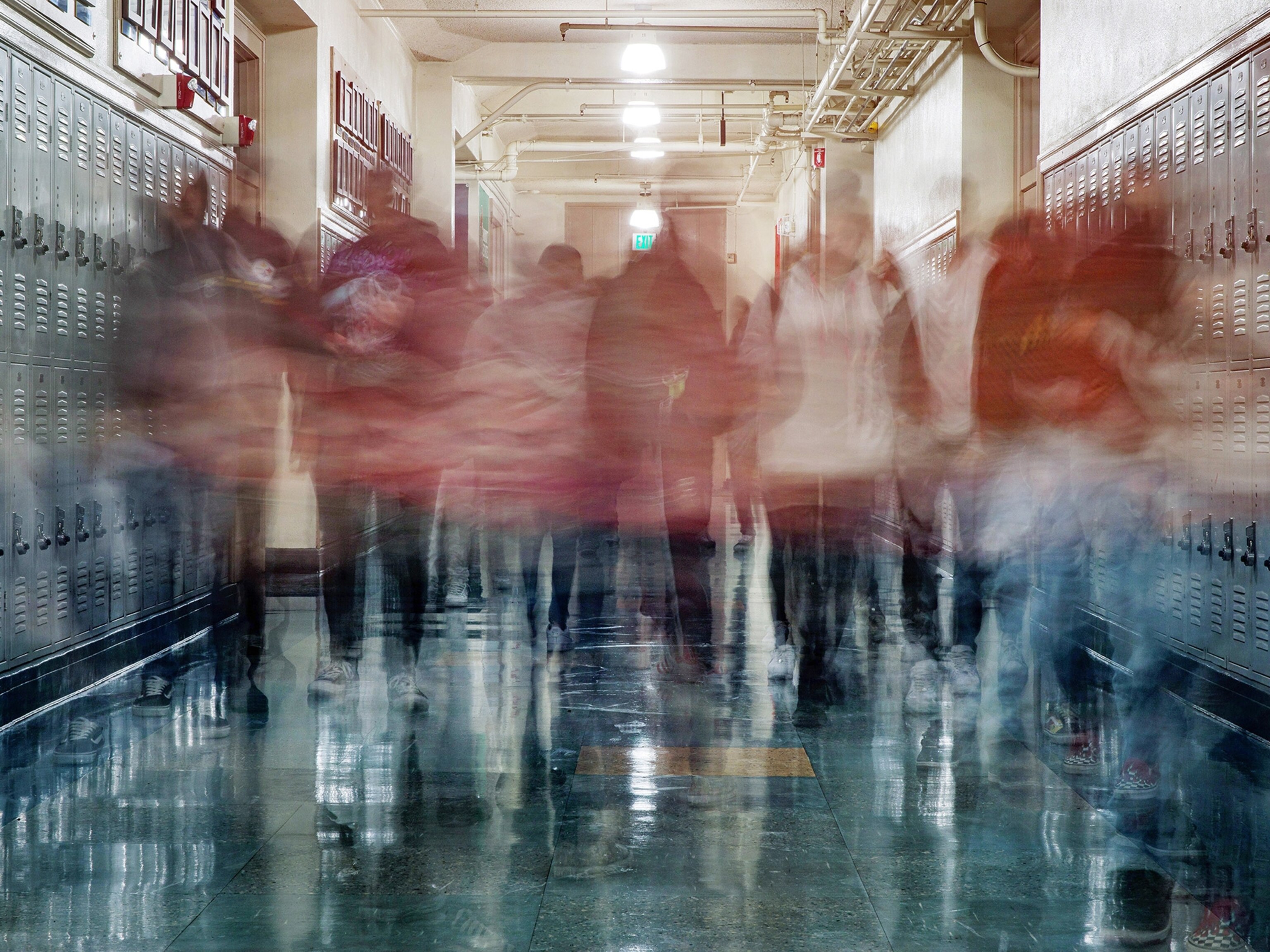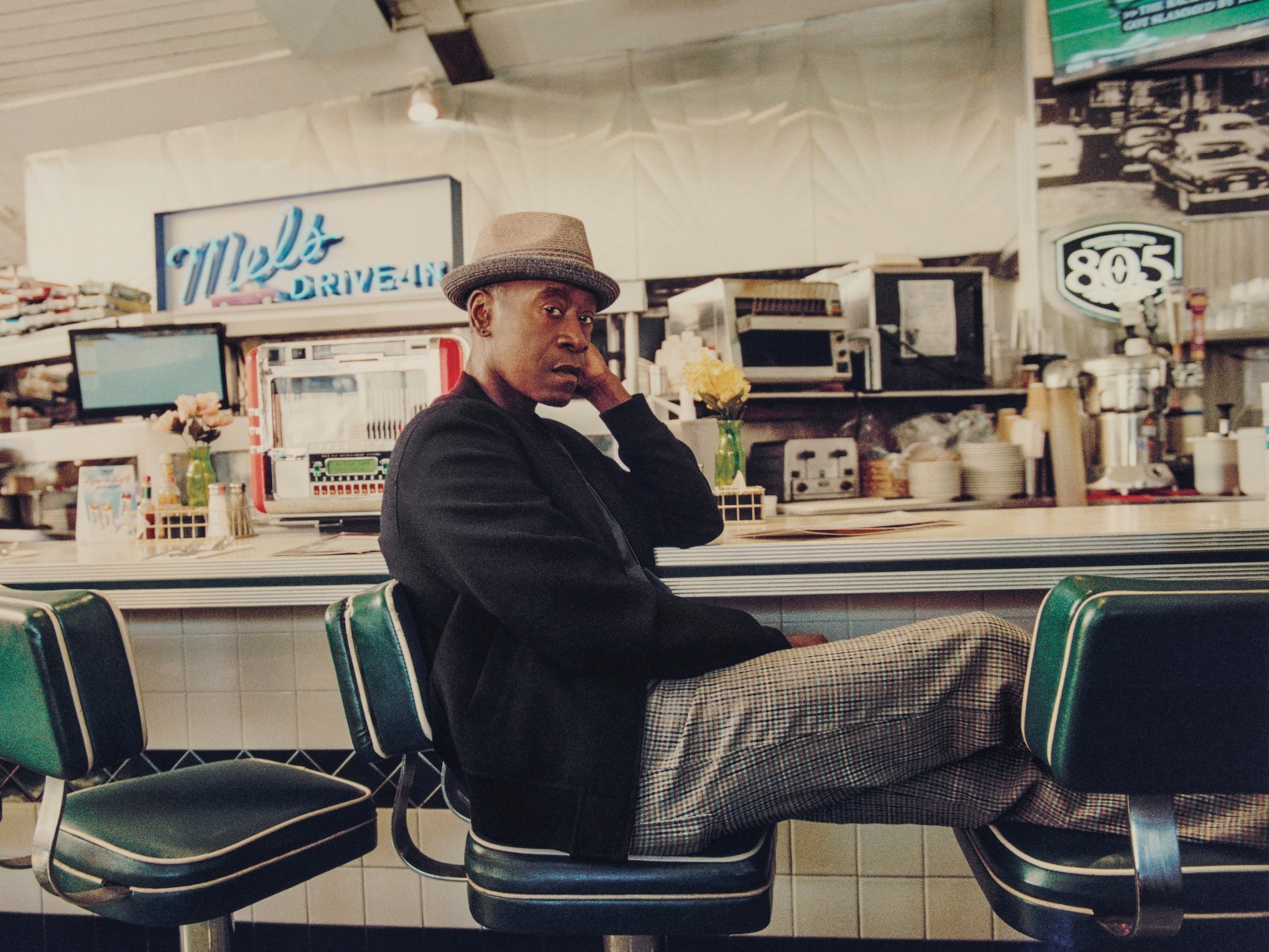
‘The 1619 Project’ comes to Hulu, expanding the story of enslaved Africans
Nikole Hannah-Jones discusses how the project reframes the role of slavery in American society “in ways that we don't know.”
Nikole Hannah-Jones grew up in Waterloo, Iowa, where much of her family still lives. As an 11-year-old, she wrote a letter to the editor of her local newspaper about a presidential primary. In 2017, she received a MacArthur Foundation Fellowship, known as the Genius Grant, for her work on educational inequality. Close ties to her community contributed to a thirst to share deeper knowledge of the American past and present, which places the enslavement of Africans at the center of the American story.
To commemorate the 400th anniversary of the beginning of slavery in what would become the United States, Hannah-Jones created an extensive project published in 2019 by The New York Times Magazine that excavated 1619—the year the first enslaved Africans landed on the shores of Point Comfort, a coastal port in the British colony of Virginia, and were sold to colonists.
The 1619 Project set out to challenge historical narratives and reframe U.S. history by examining the 400-year legacy of slavery—and by making explicit how slavery is the foundation on which the country is built. The project drew tremendous praise as well as strong criticism from some historians and political leaders. It also set off a national discourse about the role of slavery in shaping modern America and amplified the contributions of Black Americans.
Hannah-Jones, who now teaches at Howard University, founded a Center for Journalism and Democracy where students can dig into historical truths not readily available.
“Our world is so small when it comes to Black folks,” Hannah-Jones says during an interview with National Geographic for the Overheard podcast. “We don't even know there's all this history that we can learn because we think if it existed, someone would teach it to us or movies would reflect it, our monuments would reflect it.”
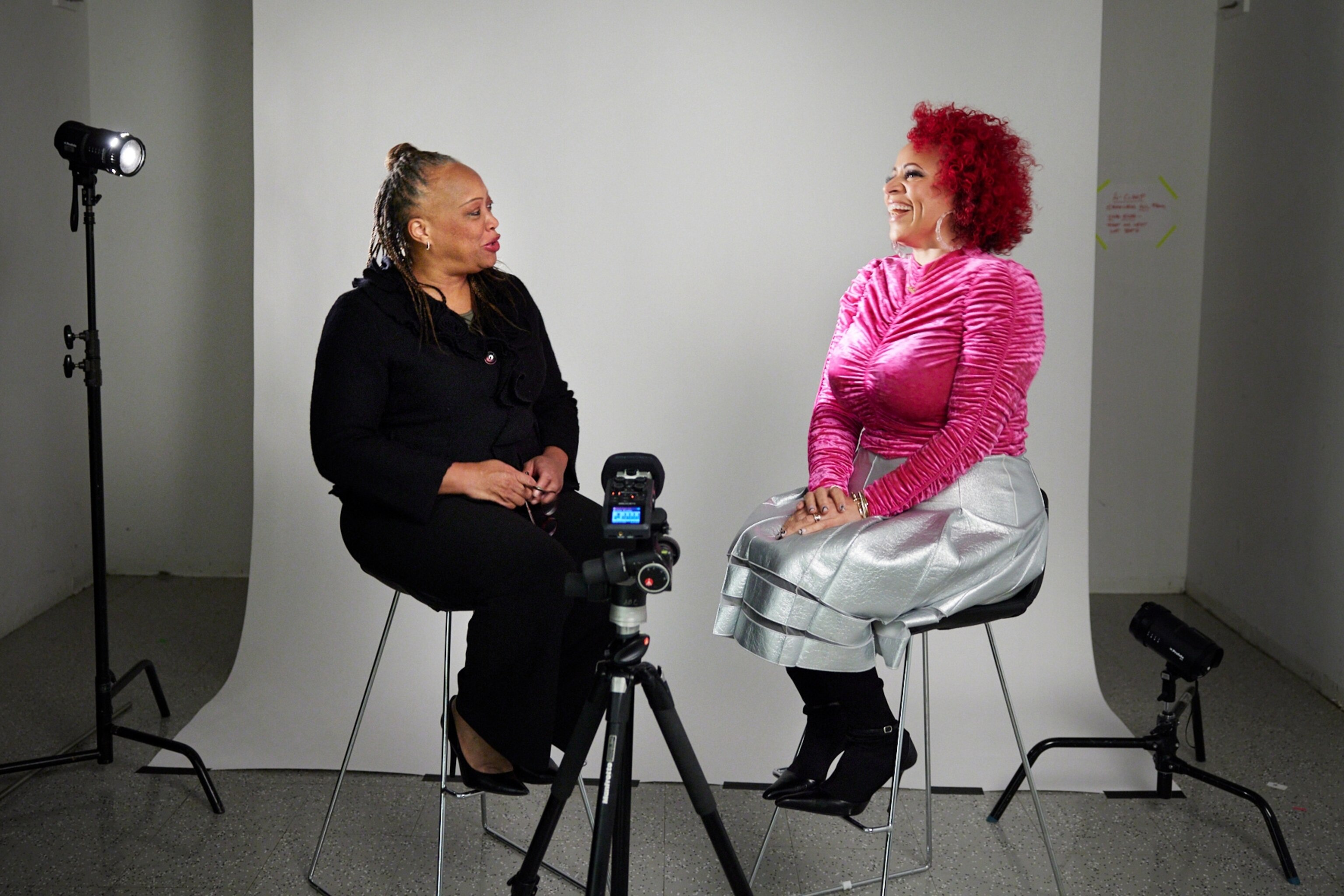
The first two parts of a six-part docuseries will be available for streaming on January 26 on Hulu.
This interview has been condensed and edited for clarity.
Can you talk about how your vision has evolved from The New York Times Magazine project to the book, to this amazing multi-part documentary that the world is getting ready to see?
It’s been a crazy and amazing, and really, just an inspiring journey for me. When I first pitched The 1619 Project I just had an idea to take over an issue of the magazine and dedicate it to excavating the modern legacy of slavery. Out of that one idea, it grew to a special section of the newspaper as well as the magazine, and a six-part narrative podcast series…Once it went into the world, there was a response of so many people who said, “I never knew this history.”
I had never been prouder to contemplate the way that slavery is foundational in shaping society today. That's really what the project argues. It's not just saying, “Let's teach you about a history that happened a long time ago, but let's teach you how that slavery and its legacy is shaping America today in ways that we don't know.”
I've thought a lot about my family back home in Waterloo, Iowa, who want this information. But, you know, it's hard to sit through 10,000 word essays, and this just makes it so much more accessible to the regular folks that I want to reach with this message.
We wished we had had more space and time to add more voices. We were able to really do that with the book. And of course, we ended up doing two books.
Even before the book came out, we also were contacted by studios who said, “We want to develop 1619 into a host of different projects.” And the first offering of that, which is the most natural offering, is The 1619 Project docuseries…This just makes it so much more accessible to the regular folks that I want to reach with this message.
Was there something in the response the first time around that made you say, “You know what, I want to revisit this part?”
My original essay in the project is on democracy and, yes, I was very excited to be able to revise it mostly because of all of the criticism and attacks that that essay received, and particularly the attacks around an argument I make about the American Revolution, which is that in the southern colonies, slavery played a major role in the white colonists deciding they wanted to join the revolutionary effort.
Even though that argument about the American Revolution became this flash point, to me, it was just one small fact in an essay that was going from 1619 to the present time. So, if you read the revised essay in the book, you'll see I now spend thousands of words making the case about the role of slavery in the revolution. And the beauty of that was I did get to respond in good faith to criticisms that were made in good faith. I also got to respond to criticisms I felt were made in bad faith.
Did you imagine that 1619 would be the beginning of a pathway to a center for democracy?
The 1619 Project was a launchpad for my being at Howard. It was important when this project became so politicized…to not just go to Howard and secure my own position, but to use that moment to create something much bigger; to ensure that other 1619-like projects and works, and reporting could go into the world because we will be training Black journalists to do historically informed investigative reporting.
Students at the high school and college level are like, "This book means so much to me. I'm realizing everything I wasn't taught, and I want to learn more because this is just the tip of the iceberg." And Black students, in particular, find themselves affirmed as agents in the American story—not just people who have been acted upon, not just people who've been oppressed—but agents who are driving the American story, that has been transformative for a lot of students.
And what's beautiful is that this project allows me to introduce the work to regular people, whether they be students or my uncle who works at the John Deere plant in Waterloo. Our world is so small when it comes to Black folks. We don't even know there's all this history that we can learn because we think if it existed, someone would teach it to us or movies would reflect it, or we'd have our monuments. And that really is the power for students. I teach a 1619 class, and all the students had to write their own 1619 essays. They had to pick a subject that wasn't in the book and show how this modern America phenomenon has been shaped.
How does 1619 create a pathway for more media organizations, historians, and others to tell a broader American story?
I think the power of The 1619 Project is it proves what many of us have always known, but that our editors don't often understand: if you put resources behind projects like this, and if you try to tell the truth unflinchingly…people will come to it.
People want complexity. They want intelligence. They want something that explains a society in the way our reporting too often doesn't.
That's how I hope it will open doors.
There are many ways we can tell these truths and broaden this understanding of America where we've all gotten such a narrow understanding, that's so narrow, as to be a lie.
This project speaks to the silences.
I would love to see a similar project done around Indigenous people. There are many ways we can tell these truths and broaden this understanding of America.
Do you think that the timing impacted the growth of The 1619 Project beyond the initial project?
Had this 400th anniversary fallen under the Obama administration, for instance, would people have been drawn to the project in the same way? I don't think so. We had banished the legacy of slavery finally with the ascension of a Black man to the presidency. So why are we looking back and excavating that stuff? But then we follow the first Black president with a white nationalist president, and everyone has whiplash.
And so, people who are trying to grapple with how does this same country produce these two things within that short period of time, I think we're looking for something in The 1619 Project with helping to explain this country. And then, of course, we get the protests of 2020, the so-called racial reckoning, which, you know, has now spawned another racial reckoning in the opposite direction.
What does the book banning conversation, which largely has been centered around 1619, tell you about the power of the project?
It is extremely affirming. The way you change your society is by helping people to better understand it and by changing the narratives that justify inequality.
Any society where power feels under attack, they target the storytellers.
If they weren't worried that it was having an impact, they wouldn't care. So, it is extremely affirming. The project is just getting bigger and bigger. And now with the documentary series, even more people are going to be able to start to make connections with the world they've built, that they live in. The scariest part is that the unequal country we have is being misshapen by the legacy of slavery. The legacy doesn't just hurt Black people and it never has. Our entire society suffers. Black people suffer the most, Indigenous people suffer the most, but our entire society suffers by this legacy. We just don't know why. This helps us understand why.
Talk about how your family and community has embraced the work.
I'm extremely proud that my family is in the documentary, but also scared because I know the scrutiny, the spotlight, how mean people are. And these are just working Black folks who were willing to share their story on camera. And it's a good reminder of what we ask people to do every single day in our profession.
You know, this is my hometown. A few years ago, it was named the worst place in America to be Black. And that says a lot for city no one's ever heard of. It is a very hard place to be Black, and to see the success I've had by telling our stories means so much to my family personally. These are just humble folks who never expected that anyone from our clan would become what I've been able to become. And what's so important to me is people understand I didn't become this in spite of my community, but my community built me. My community gave me what I needed to be able to succeed.
They're excited. I'm excited. My uncle, Uncle Larry, who's in that opening scene, is now the star of his John Deere plant because of The 1619 Project. And this is before they even see him in the documentary. So, I hope that it will yield all good things for them and that by sharing their truth, they help America see its own.
What do you think your father would say if he could see where you are now?
My father and my Uncle Eddy, who I also talk about, which was my dad's brother and my closest uncle, both passed years ago. They would be so astounded by everything that's come. One of my proudest moments in this is that when you open the book, the first image you see is of my dad. In that picture of my dad, he's in Germany. He was 17, 18 years old, he had joined the military. He always said he felt freest when he was abroad because that was the only time he really felt he got treated like an American.
I always say America killed my dad... my dad and my uncle. My uncle died at 50 years old from cancer that went undiagnosed because he didn't have health insurance even though he worked every day. My dad was a man of stunted ambitions his entire life. He was one of the smartest people I knew. He was an avid reader but never was able to get ahead, and just had terrible health outcomes. He died before he could get Social Security like so many Black people in this country. And so just to think that everything every, you know, every ambition he had to swallow could produce me? I just think about that, I carry that with me all the time. Who am I doing this for?
Part of the power of the docuseries is that so many Black families see themselves in your story. Talk about that.
This is the American story of so many people, but that never gets told in this way. And that's who I did this project for. Of course, I invite everyone to learn this, this history and see these stories. This is for the descendants of American slavery.
The stories we tell are the stories of nearly every single Black person, no matter what wealth or status they have. It's both the tragedy of America and the beauty of our people.
A version of this story appears in the June 2023 issue of National Geographic magazine.
